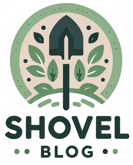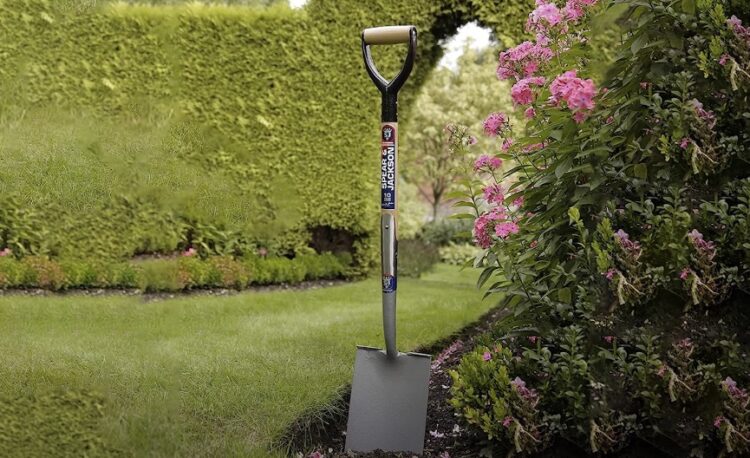In gardening, the right tools matter. The flat shovel and spade are must-haves in every gardener’s shed. This guide explores their differences, best uses, maintenance, and more, aiding your informed choice. Whether a seasoned or novice gardener, knowing these distinctions enhances your gardening experience.
What is a Flat Shovel?
Flat shovels, with their broad, flat blades, are versatile garden tools designed for scooping and moving loose materials. Often considered the Swiss Army knife of garden tools due to their adaptability, flat shovels play a crucial role in various outdoor tasks.
Understanding the Spade
On the flip side, spades are specialist digging equipment. Their thinner blade and sharper edge make them perfect for cutting into dirt and producing accurate trenches. Flat shovels are great all-arounders, but spades are the way to go when you need to plant, transplant, or edge with precision.
Key Differences: Flat Shovel vs. Spade
Comparing a flat shovel to a spade is akin to contrasting a butter knife with a steak knife. Each tool serves a unique purpose in the garden. To help you choose the right one, let’s delve into their specific applications.
| Aspect | Flat Shovel | Spade |
|---|---|---|
| Blade Shape | Broad, flat blade designed for scooping and moving | Narrow, sharp blade ideal for precise digging and slicing |
| Primary Use | Moving mulch, clearing snow, spreading compost | Planting, transplanting, edging |
| Durability | Sturdy for heavy-duty tasks | Built for precise and delicate work |
| Maintenance Needs | Cleaning and occasional blade sharpening | Blade maintenance and handle care |
| Ergonomics | Handle design for comfort during prolonged use | Ergonomic handle for precise control |
| Price Range | Affordable, with variations in quality and materials | Can be more expensive due to precision construction |
| Environmental Impact | Consider impact on materials used and longevity | Assess environmental factors of materials and manufacturing |
When to Use a Flat Shovel
Flat shovels are versatile tools that shine in a variety of outdoor tasks. Here are some scenarios where you might find a flat shovel indispensable:
- Moving Mulch: When you need to transfer mulch from one place to another in your garden, a flat shovel’s broad blade is efficient for scooping and spreading;
- Clearing Snow: During winter, a flat shovel is perfect for clearing snow from driveways and walkways due to its wide surface area;
- Spreading Compost: When it’s time to enrich your garden beds with compost, a flat shovel can help evenly distribute the organic matter.
Flat shovels are the workhorses of the garden world, making them an essential tool for many outdoor projects.
Best Scenarios for a Spade

Spades, with their precise design, are better suited for specific gardening tasks that require accuracy and control:
- Planting: When you’re creating holes for new plants or bulbs, a spade’s narrow blade allows you to dig precise holes to the required depth;
- Transplanting: When moving established plants from one location to another, a spade’s sharp edge ensures minimal root disturbance;
- Edging: Spades are excellent for creating clean and defined edges around flower beds and pathways.
In these scenarios, a spade’s ability to make accurate and deeper cuts into the soil is invaluable.
Durability and Maintenance
Both flat shovels and spades are garden tools built to last, but their maintenance requirements differ:
- Flat Shovel: To maintain a flat shovel, it’s important to regularly clean off dirt and debris to prevent corrosion. Occasional blade sharpening may be necessary for optimal performance;
- Spade: Spades require more focused blade maintenance due to their precision work. Keeping the blade sharp is essential for clean cuts. Additionally, handle care is crucial to ensure ergonomic control.
Proper maintenance ensures the longevity of these tools and helps you get the most out of your investment.
Ergonomics and User Comfort
Ergonomics play a vital role in tool selection, as gardening often involves prolonged use. Let’s examine how flat shovels and spades cater to user comfort:
- Flat Shovel: Many flat shovels are designed with ergonomic handles that reduce strain on your hands and wrists during extended use. The weight distribution of the broad blade helps with efficient scooping;
- Spade: Spades typically feature ergonomic handles that allow for precise control. These handles are designed to minimize fatigue when performing detailed tasks.
Choosing a tool with ergonomic features can significantly enhance your gardening experience, making it more comfortable and productive.
Price Comparison
When selecting between a flat shovel and a spade, budget is always a consideration. Let’s compare the cost of these two tools:
- Flat Shovels: Flat shovels are generally more affordable than spades, with a wide range of prices to accommodate various budgets. The cost may vary based on the quality of materials used and the manufacturer;
- Spades: Spades can be more expensive than flat shovels due to their precision construction and specialized design. High-quality spades often come with a higher price tag.
Consider your budget and the specific gardening tasks you’ll be performing when making your purchase decision.
Environmental Impact
In today’s eco-conscious world, considering the environmental impact of your gardening tools is essential. Let’s explore the environmental factors related to flat shovels and spades:
- Flat Shovels: Assess the materials used in the construction of the flat shovel and their environmental impact. Look for options made from sustainable materials to minimize ecological harm;
- Spades: Consider the materials used in the blade and handle construction of the spade, as well as the manufacturing processes employed. Opt for brands and models that prioritize sustainability.
Choosing environmentally-friendly gardening tools contributes to a greener and more sustainable approach to gardening.
Popular Brands and Models

To help you make an informed decision, let’s spotlight some of the top brands and models of flat shovels and spades that fellow gardeners trust:
| Category | Product | Price Range | Features |
|---|---|---|---|
| Flat Shovels | Fiskars 96685935J Long Handle Digging Shovel | $28.99 – $45.99 | Ideal for tough soil, welded steel blade, large foot platform |
| True Temper 2585600 Square Point Shovel | $41.13 – $57.88 | Fiberglass handle, efficient for moving loose material | |
| Bully Tools 82515 14-Gauge Round Point Shovel | $46.19 – $53.68 | Fiberglass handle, 14-gauge steel, cuts through tough soil and small roots | |
| Spades | Radius Garden 22011 Root Slayer Spade | $53.79 – $66.50 | Serrated edge, V-shaped cutting tip, durable steel |
| Fiskars 46 Inch Steel D-Handle Square Garden Spade | $30.99 – $53.99 | Durable design, welded steel construction, excellent grip | |
| Spear & Jackson 1190EL/09 Select Stainless Spade | Pricing not available | Typically available on platforms like Amazon, eBay |
These brands and models have garnered positive reviews for their durability and performance, making them worth considering for your gardening needs.
Tips for Choosing the Right Tool
If you’re still confused about which tool to choose, consider these practical tips to guide you in selecting the tool that best fits your gardening needs:
- Assess Your Tasks: Determine the primary gardening tasks you’ll be performing. If you require precision work, lean towards a spade. For versatile use, a flat shovel is a solid choice;
- Budget Considerations: Factor in your budget when making a decision. Determine how much you’re willing to invest in a quality tool;
- Ergonomics: Pay attention to the handle design and weight distribution. Choose a tool that offers comfort during prolonged use;
- Environmental Impact: Opt for tools made from sustainable materials to minimize your ecological footprint;
- Read Reviews: Research customer reviews and testimonials to gain insights into the real-world performance of specific brands and models.
Community Insights
To provide you with a comprehensive view, let’s hear from the gardening community. We’ve gathered insights and experiences from real users to help you make the best choice. Here are some common sentiments:
- Flat Shovels: Gardeners appreciate the versatility of flat shovels for tasks like mulching and snow removal. They often mention the ease of use and durability as key advantages;
- Spades: Users of spades emphasize their precision and control when working with plants and creating clean edges. Many find them essential for more delicate gardening tasks.
Listening to the experiences of fellow gardeners can offer valuable perspectives when deciding between a flat shovel and a spade.
Conclusion
Flat shovels are versatile for moving materials, while spades excel in precision tasks. Maintain them well, consider ergonomics, budget, and environmental impact. Having both in your toolkit enhances your gardening experience.
FAQ
The primary differentiation can be observed in their form and designated function: spades are designed for precision digging, whereas flat shovels are utilized for moving materials.
It’s possible, but not ideal. Spades are designed more for cutting into soil than for scooping.
Yes, many brands offer ergonomic designs to reduce strain and increase comfort.
Regular cleaning, proper storage, and occasional sharpening are key to maintaining these tools.
Absolutely! Each tool serves a unique purpose, making them both valuable additions to your gardening toolkit.

